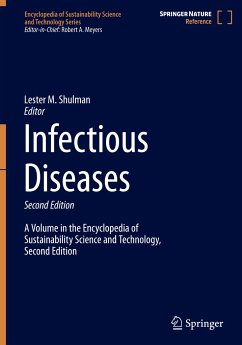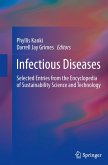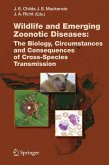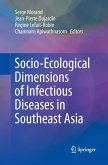This volume on Infectious Diseases in an Encyclopedia of Sustainability Science and Technology (ESST) addresses the needs of health care providers and policy makers as well as scientists and engineers. Most of chapters in this volume deal with infectious diseases that directly affect humans, including the detailed characterization of specific pathogens, how they reproduce, how they are transmitted, and the means available to control, eliminate, or eradicate them.
In this revised and updated second edition, the number of human infectious diseases covered has been significantly expanded. Other new chapters deal with current leading edge technologies for the diagnosis of pathogens; surveillance including environmental and syndromic surveillance for pathogens; requirements for quality assurance, quality control and the need for biological standards and controls to sustain high quality diagnosis and surveillance; the use of big data for personalized medicine; modeling infectious diseases; zoonotic and vector borne diseases; disease prevention with antibiotics, antivirals and vaccines; and factors that affect ecological balances leading to emergence of new diseases such as climate change and deforestation. Finally, infectious diseases that affect livestock and culture of plants for food, comfort and beauty are also addressed, since we must also consider them when discussing sustainability of humans in our ecosystem.
Hinweis: Dieser Artikel kann nur an eine deutsche Lieferadresse ausgeliefert werden.
In this revised and updated second edition, the number of human infectious diseases covered has been significantly expanded. Other new chapters deal with current leading edge technologies for the diagnosis of pathogens; surveillance including environmental and syndromic surveillance for pathogens; requirements for quality assurance, quality control and the need for biological standards and controls to sustain high quality diagnosis and surveillance; the use of big data for personalized medicine; modeling infectious diseases; zoonotic and vector borne diseases; disease prevention with antibiotics, antivirals and vaccines; and factors that affect ecological balances leading to emergence of new diseases such as climate change and deforestation. Finally, infectious diseases that affect livestock and culture of plants for food, comfort and beauty are also addressed, since we must also consider them when discussing sustainability of humans in our ecosystem.
Hinweis: Dieser Artikel kann nur an eine deutsche Lieferadresse ausgeliefert werden.








